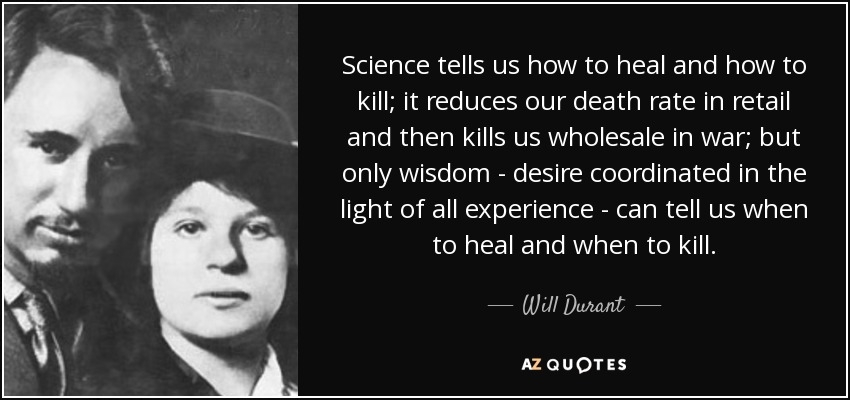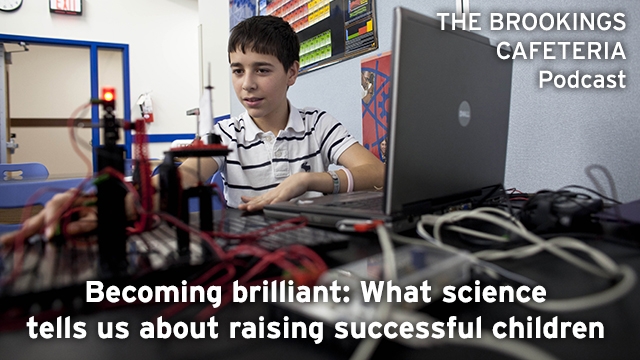I've become more aware of late of news articles, mainstream, NPR, all of them, using the phrase, "Science says..." or "Science tells us..." followed by a point the author wants to make. I want to tell you why you should never believe what follows that phrase. Ever.
Here's why:
Appeal to Authority One very common logical fallacy is an appeal to authority as a means of proving that what you said is correct. An example: "Einstein said that matter and energy of interconvertible, so he backs up my idea of harnessing dark energy." No, he didn't. Einstein had a mathematical equation to explain the energy produced in a nuclear reaction. Period. He never knew of your "dark energy harness" and thus is silent on the matter. Unless a scientist said exactly what you mean, he didn't say it, and your claim is then a lie. If you want to use a scientist as your authority, it has to be a real quote, in context, saying something pertinent, and you must include your citation.

Appeals to authority usually happen when the author is too weak or lazy to find out what a scientist actually said, and instead attribute the information to a nebulous and undefined group of ideas called "Science." This is an astounding body of knowledge, providing fully-tested theories on any topic an author chooses, and always in agreement with the author's ideas.
But here is where it gets really bad.
Personification of a Method Science is mute on all subjects always. "Science" can't say anything. Science is a method of finding things out, and it's never finished. Here is the short version of what scientists should do:
- make an observation which has no explanation using known theories
- postulate a possible explanation
- test the hypothesis formed above in a way that exposes its weaknesses
- go back to step one and refine your hypothesis
- eventually you will have enough evidence to be believed. It takes many different groups and a lot of published papers, but in time you can say, "Congratulations hypothesis, now you're a theory!"
- All it takes is one counter-observation to nullify the theory. They just don't last all that long before a new theory is needed.
That's science. Nowhere in that process is there a place for science to speak. Only scientists can speak, and then it should be only about what they can prove. So you can quote a scientists, but never "science."

Scientists are Humans And there's something more here: not all scientists can use the scientific method. There are entire fields, the "soft sciences" (biology, cosmology, astrochemistry, social science, political science, economics, baseball stats, etc.), which deal with observations which can't be tested and thus can't be proven. What they are trying to do is explain a mechanism (how something happened in the past) and no mechanism is testable. One-shot events (non-repeatable and non-testable observations), remote observations which limit the amount of data needed to fully understand what was observed, complex systems poorly understood, which all prevent the testing of the hypothesis. And the soft scientists naturally get used to speaking of the untested hypothesis as though it were tested, imparting more significance to their work than it deserves under the stricter application of the scientific method. In short, some scientists talk out of the sides of their mouths. "We know that the active site of acetyl-CoA synthase contains nickel and iron atoms" is something I heard for years in my PhD work in bioinorganic chemistry. And then the crystal structure showed, pretty clearly, that copper and zinc were there as well. Oops. We should have been saying, "EPR, Mossbauer, and some good metal extraction chemistry lead us to think that only nickel and iron are in the active site," but that would have been too many words. So we simplified, and spoke with greater surety than we possessed. And you non-scientists need to know something, every scientist does this. We're only human. We all overstate, in conversation, what we think as though it were what we had proven.
The Untestable Hypothesis as Science. The "Soft Sciences" are the realm of the untestable hypothesis. Social science, political science, economics (mostly), history, paleontology, cosmic physics, all try to explain what happened, but really all they can do is make a guess which is hard to challenge, because the data is thin, and the hypothesis is utterly untestable. All arguments are those of opinion. The phrase, "All science is physics. The rest is stamp collecting," applies very much to the soft science. The hard sciences, physics, chemistry, some biology, very little geology, can be examined in detail in a lab, and experiments constructed to eliminate bad hypothesis and refine the theory. No controversy.
P-hacking. The "p" value is a statistical variable which is supposed to represent how likely the result came from chance. A value of 0.05 (5%) is considered by many to the the value you must attain before the data you measured is a real effect. I'm happy at p=0.00, but I'm in a hard science, and I can afford the certainty. The thing about a p-value: it continually changes as you gather data. For a real effect you measure, it should get smaller as you gather more data. But what if the effect isn't real? The p-value bounces around. Gather enough data,and the value will, by chance, drop below 0.05. That's when the "scientist" stops collecting data and publishes. A "scientist" can also lower the value by simply cheating in some way that's difficult to detect, like selecting the test group and the control group to emphasize the effect being examined. Or setting data rules after examining the data to eliminate extreme data which point the wrong way.
The Press Conference. This is my surest method: any time a "scientific discovery" is trumpeted in a press conference before it has been through peer review and published, it's fake. Or it's so overblown that reality doesn't match at all. What has happened is that a university PR flunky got his grubby, depraved hands and the discovery is blown all out of proportion, and the poor scientist is dragged along and later has all kinds of cause to regret every starting the work.
The Science Reporter. I've only twice read a news report on a scientific discovery that got it right. Philip Ball wrote them both. All the rest have things wrong, things which tell me they don't understand what was going on. You can safely ignore them. "Science" isn't telling this to you, an English Major is.